Museveni to NRM delegates: Fight poverty, corruption and build money economy
In his address, President Museveni expressed delight at the youthful composition of many of the newly elected delegates, describing it as a healthy sign of generational renewal within the Movement.
Museveni to NRM delegates: Fight poverty, corruption and build money economy
By Admin .
Journalists @New Vision
___________________
2026 General Election
President Yoweri Museveni has opened the 1st Meeting of the 4th National Conference of the National Resistance Movement (NRM) at Kololo Independence Grounds in Kampala with an appeal to delegates to focus on discipline, fight poverty and corruption. He has also urged them to ensure that every Ugandan household joins the money economy.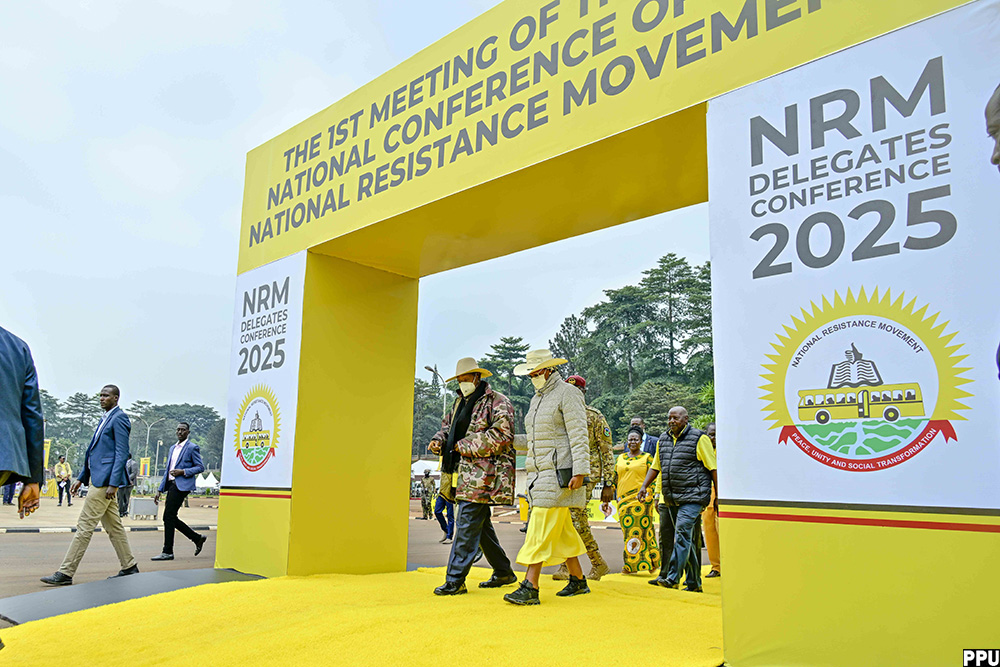
Accompanied by First Lady and Minister of Education and Sports Maama Janet Kataha Museveni, the President, who is also the national chairperson of the NRM, on August 25, 2025, addressed thousands of delegates from across the country gathered to elect special interest group representatives and chart the Movement’s future direction.
The conference will see the election of leaders representing the youth, the elderly, workers, and persons with disabilities, among others.
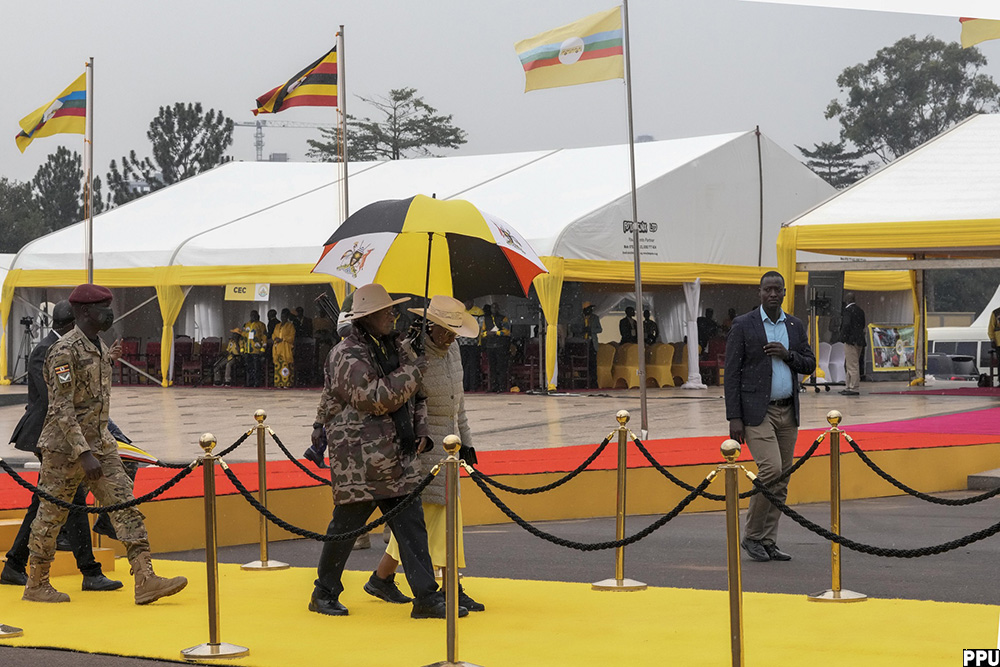
Happy with composition
In his address, President Museveni expressed delight at the youthful composition of many of the newly elected delegates, describing it as a healthy sign of generational renewal within the Movement. He urged them to uphold the NRM’s principles of patriotism, Pan-Africanism, democracy and socio-economic transformation, while taking the party’s vision deeper into households across Uganda.
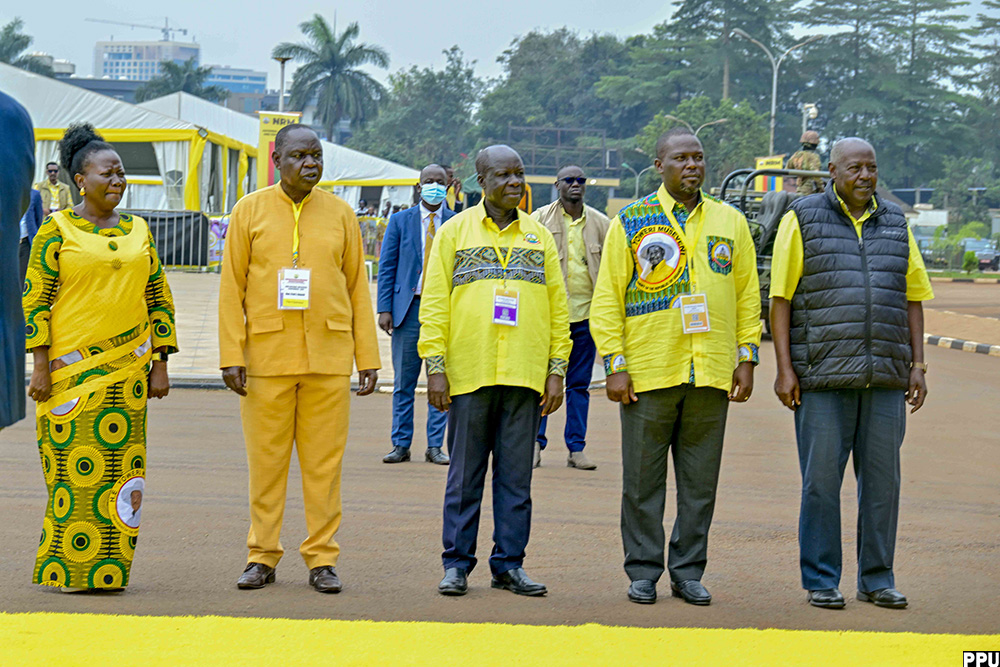
The President took delegates on a reflective journey of Uganda’s economic transformation under the NRM, tracing progress from the days of “minimum recovery” to what he now describes as the country’s “take-off stage.”
He recalled the difficult years when Ugandans lacked basic commodities such as sugar, salt, and soap, noting that those days were about mere survival. He explained that Uganda later expanded its economy through cash crops like coffee and tea, diversified into other sectors, and is today producing higher-value products.
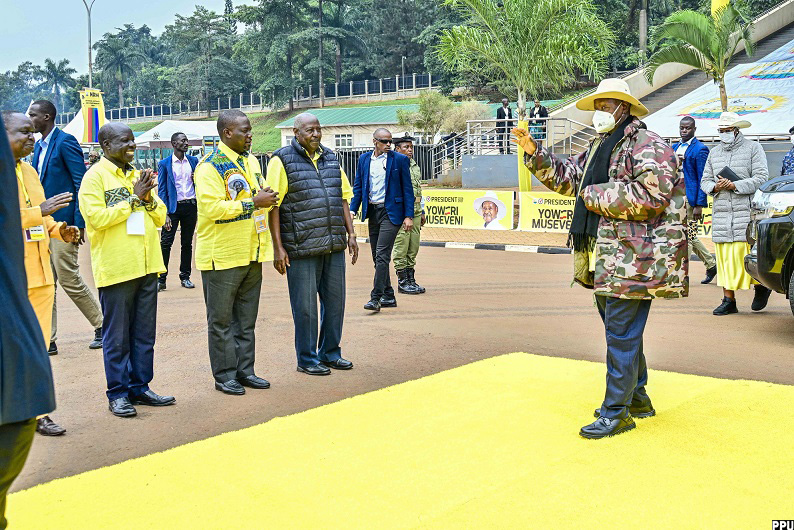
President Museveni pointed to recent milestones such as the manufacture of vehicles through Kiira Motors, the establishment of vaccine production facilities, and the rise of ICT as evidence that Uganda has firmly entered its industrial age.
“We are no longer in recovery; Uganda is in the take-off stage. We are now manufacturing our own cars, producing vaccines, and building an ICT-driven economy,” President Museveni said.
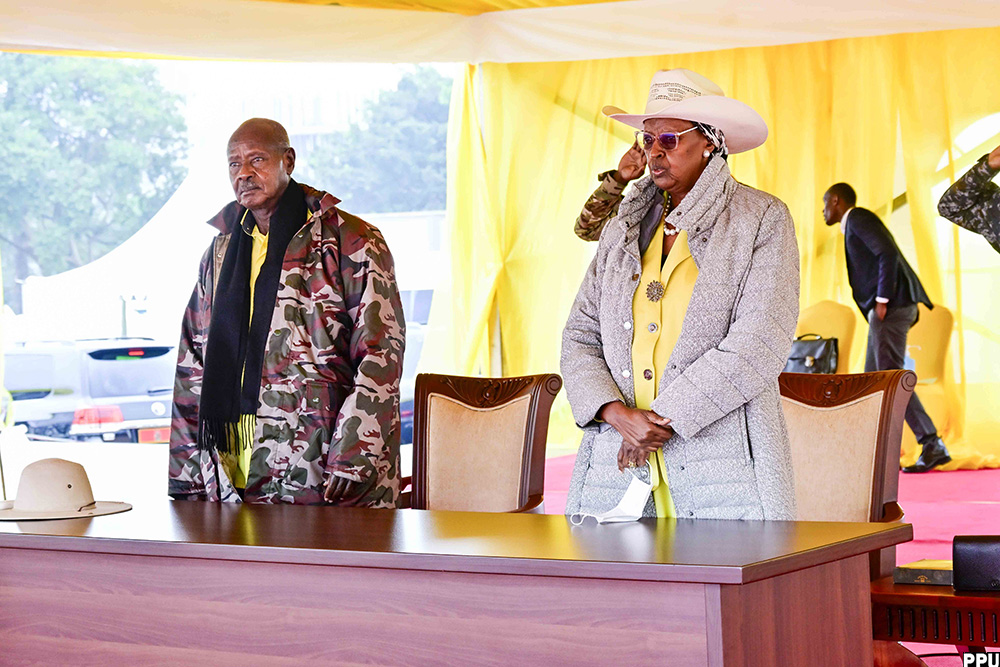
Wealth creation
Turning to household wealth creation, the President stressed that Uganda’s long-term stability rests on every family joining the money economy. He recalled that in 2013, about 68 percent of the population was still outside the money economy, but recent figures show that 67 percent are now participating. He said the government’s target is to ensure that no family is left behind.
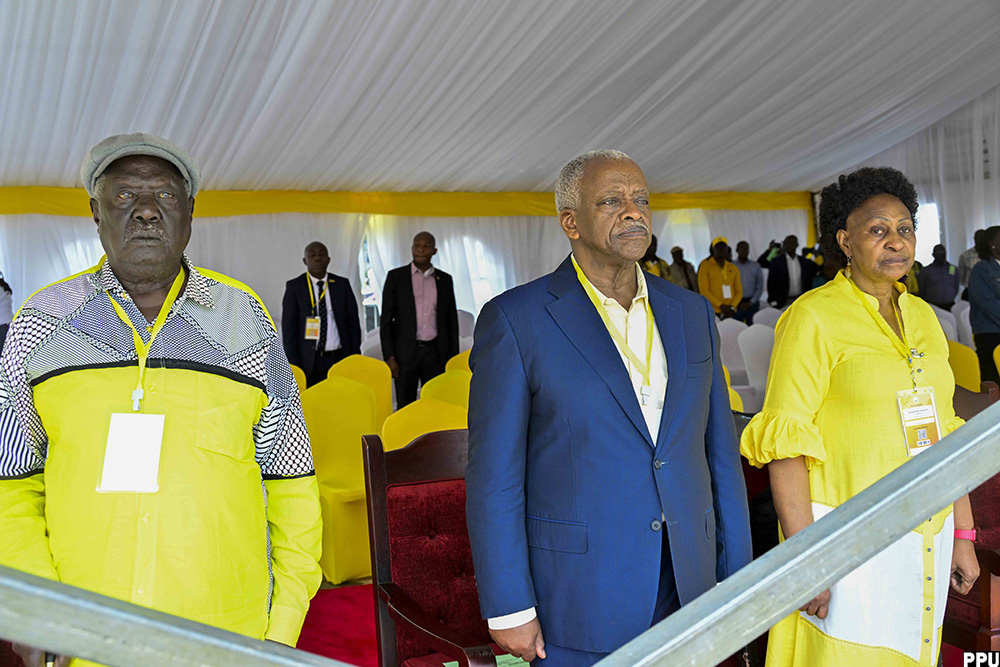
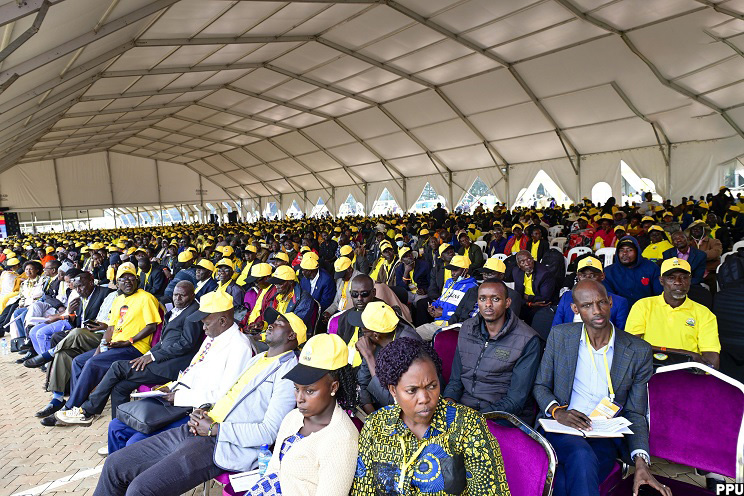
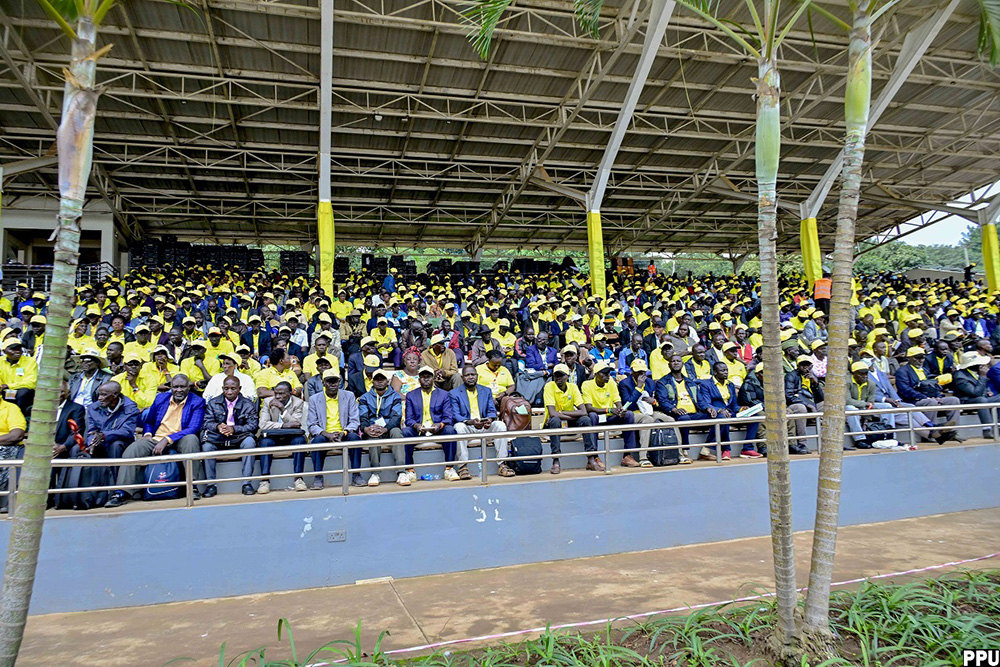
To illustrate his point, President Museveni cited the example of Joseph Ijaara, a farmer in Serere who uses a small piece of land to achieve high returns through commercial agriculture. He explained that Uganda’s money economy rests on four pillars — agriculture, industry, services, and ICT — and urged delegates to help their communities embrace at least one of these sectors.
“In the past, towns were only filled with shops, but today we are building towns of factories where people work and earn. That is the NRM difference,” he said.
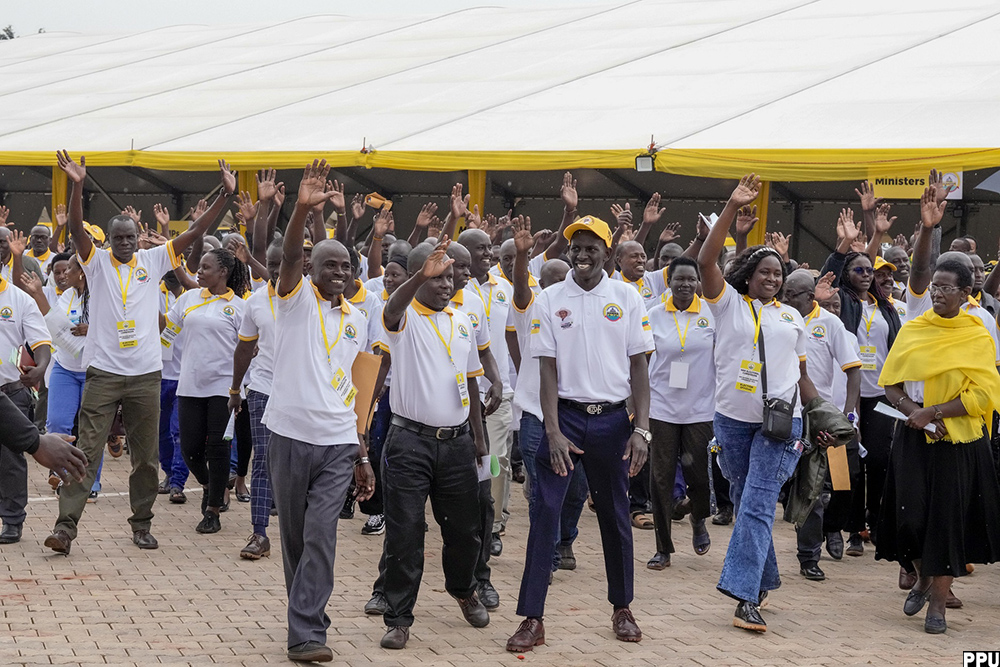
The President challenged leaders to return to their communities with a clear mission of tackling the issues that directly affect ordinary Ugandans.
“What I want you to take from here is simple: fight poverty in your families, fight corruption — don’t allow people to eat Parish Development Model (PDM) money. Insist that the police fight crime, and where they fail, report them,” he stressed.
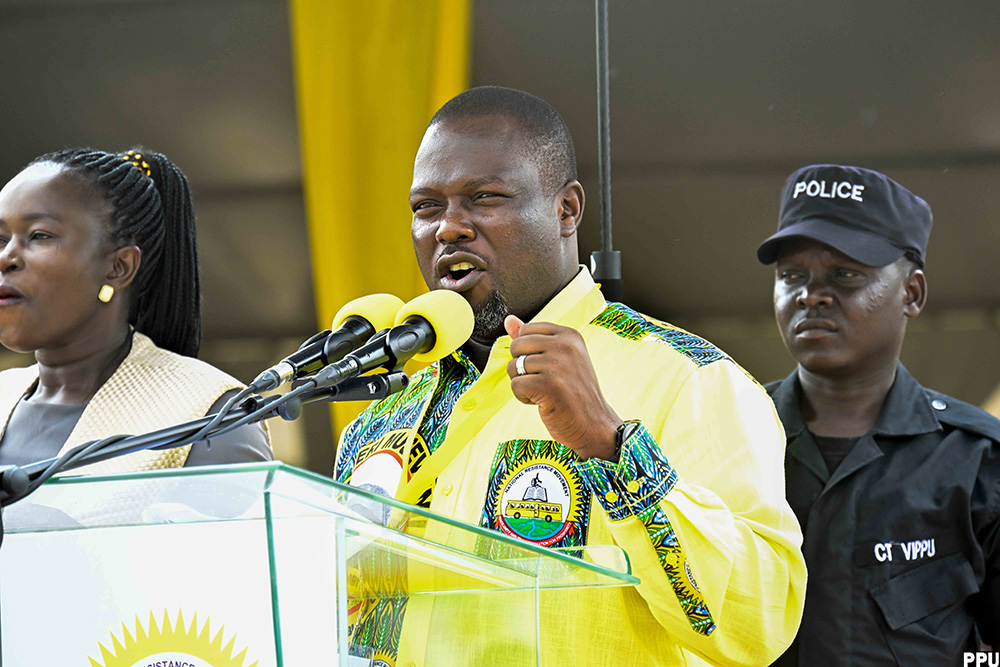
Social services are the foundation
President Museveni also underlined the importance of social services as the foundation of transformation.
On health, he noted progress in the fight against malaria and immunisation campaigns but criticised the persistent theft of drugs, which undermines treatment.
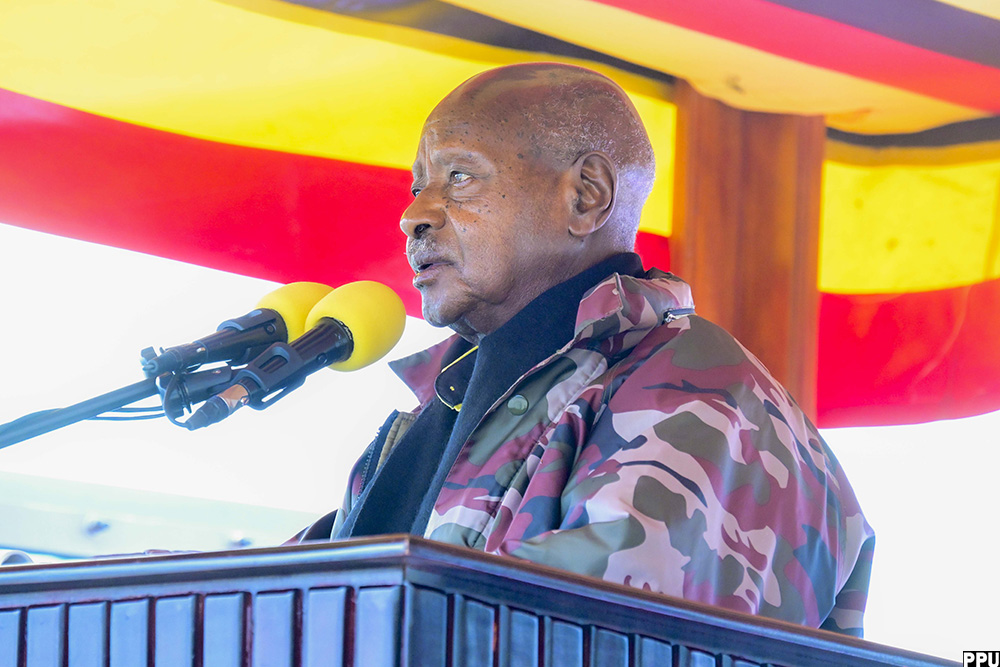
He reaffirmed the government's plan to expand safe water access to villages across the country.
On infrastructure, President Museveni revealed that each district receives UGX 1.3 billion annually to maintain murram roads, stressing that the funds must be properly used.
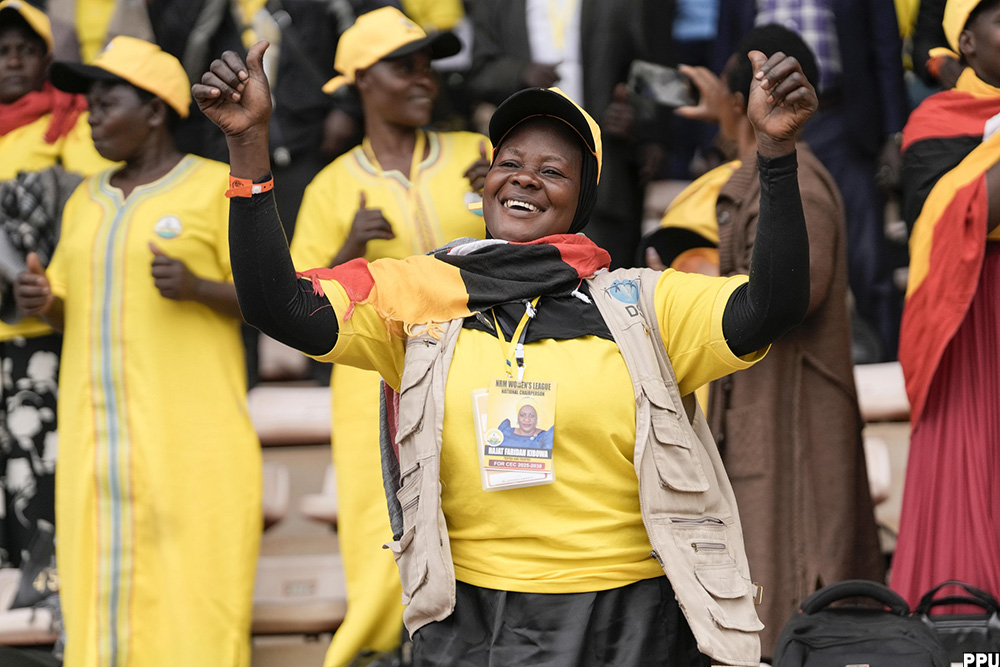
Free education
On education, President Museveni made one of his strongest commitments of the day: ensuring free education in government schools. He argued that since parents overwhelmingly prefer government schools, fees must be abolished to allow every child access to quality education.
“Once the NRM is voted again, we shall insist on free education in all government schools. Support me so we can fully implement it,” he said.
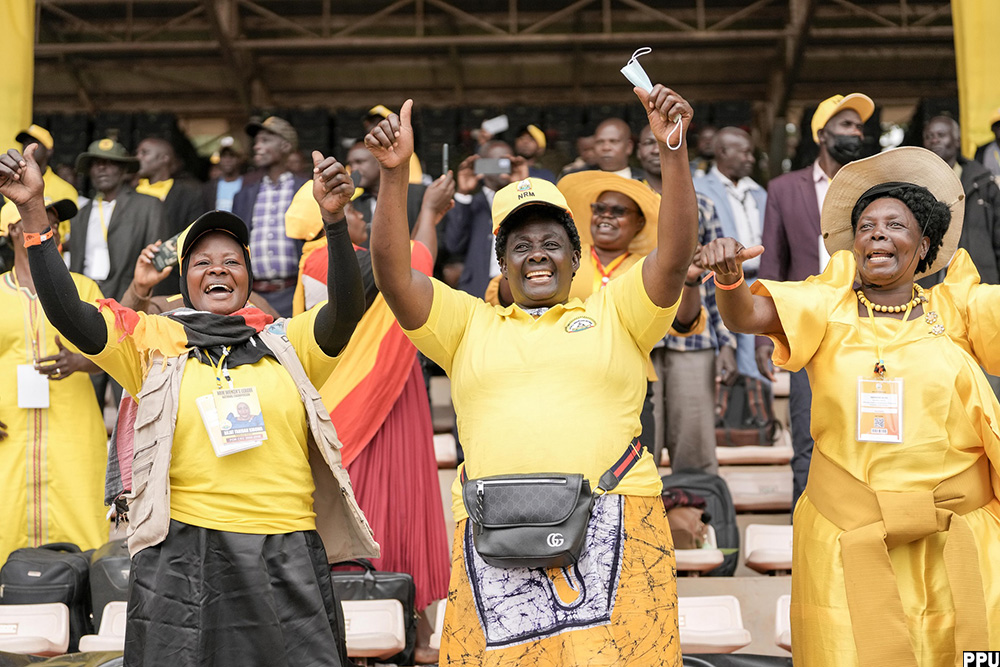
NRM secretary general Richard Todwong also addressed the gathering, reminding delegates that the NRM is a Movement bigger than any individual and that leadership must always be seen as service, not self-enrichment.
He urged them to embody discipline, sacrifice, and responsibility in their work, stressing that elections may come and go, but the Movement and the people remain.
Dr Tanga Odoi, the chairperson of the NRM electoral commission, promised to deliver free and fair elections of leaders of special interest groups and the subsequent elections that will follow in the coming days.